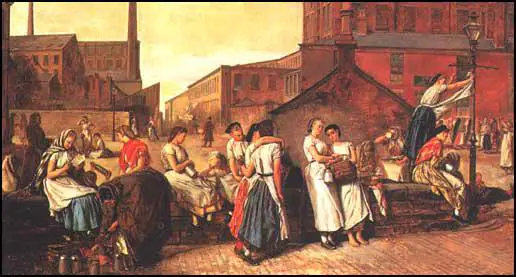1844 Factory Act
R. W. Cooke-Taylor, the author of The Factory System was also an Inspector of Factories. In his book he explained the 1844 Factory Act.
The Factory Act of 1844 is an extremely important one in the history of family legislation. The Act reduced the hours of work for children between eight and thirteen to six and a half a day, either in the morning or afternoon, no child being allowed to work in both on the same day, except on alternate days, and then only for ten hours. Young persons and women (now included for the first time) were to have the same hours, i.e. not more than twelve for the first five days of the week (with one and a half out for meals), and nine on Saturday.
Certificates of age were to be granted in future only by surgeons appointed for the purpose. Accidents causing death or bodily injury were to be reported to these surgeons, who were to investigate their cause and report the result to the inspector. The factory was to be thoroughly washed with lime every fourteen months. A Register was likewise to be kept; in which were to be entered the names of all children and young persons employed, the dates of the lime-washing, and some other particulars. Certificates of school attendance were to be obtained in the case of children.

